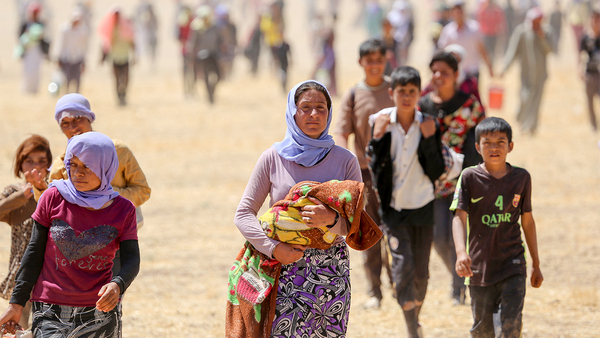Life and Times – Behind the crime

We all make bad decisions. Sometimes the consequences aren’t that bad, but sometimes they are. That may depend on the circumstances at the time, but it may also depend on the long-term build-up to the decision. This came out clearly in a recent BBC radio programme which looked at the life of a woman whose bad decision – in fact whose series of bad decisions – caused her to end up in prison.
Marriage, abuse and incarceration
Sinem was the daughter of a Turkish family who had fled from persecution in their own country to settle and start a new life in the UK. She told us that, as a young girl, she did well at school but found it hard to fit in with others of her age largely due to the strictures of her home background. This sent her somewhat off the rails. As a teenager she was found in bed with the son of another Turkish family and, given the culture, that meant only one thing – marriage. She quickly had children, which, though it somehow made her feel more secure, did not satisfy her and she managed to enrol on a university course and get a degree. But employment was hard to find and she eventually took a job as a prison officer – in a men’s prison.
This is when things really started to go downhill. Her abusive husband was violent to her and she decided she had to leave him. But in doing that she lost the extended family support she had previously had to help look after her children. This meant she had to reduce her hours of work, and this caused her acute financial difficulty. To be able to pay her rent and other expenses she fell into debt. And this triggered another bad decision. She started smuggling drugs into the prison she was working in to raise money. Inevitably perhaps she was found out and arrested.
But it’s what happened then that, as a listener to this programme, I found particularly interesting and noteworthy. When her smuggling activity was discovered, she was not shunned or blamed by her fellow workers in the prison but treated with great understanding and compassion. Though she had, in a sense, betrayed them, during her arrest they carried on supporting her and treating her like the human being fallen on hard times they knew she was. And when she herself was prosecuted and sent to prison, they carried on keeping in touch with her.
Understanding and compassion
This behaviour by her co-workers seems to accord well with the view now widely expressed by writers and commentators that the age-old idea of an inevitably ‘nasty’ human nature is no more than a myth and that, given half the chance, human beings will be kind to, cooperative with, and supportive of one another – including, and perhaps especially, when someone is ‘in trouble’. Rutger Bregman’s recent massively influential work, Human Kind, for example, argues that the innate, fundamental default of human beings is to be friendly, communal, kind-hearted and cooperative, something that seems to be confirmed by what happened in Sinem’s case. And Sinem’s incarceration also then turned out positive for her. In the open prison she was sent to, again she found enormous support, especially from the ‘mentor’ assigned to her. This helped her to recover from being the ‘broken person’ she said she was and to be then granted a day release arrangement to begin studying for a further degree and afterwards, when released completely, to end up as a university lecturer in criminology.
So a sort of happy ending. But a lucky one too, since, as the programme pointed out, we are all profoundly marked by the string of experiences that constitute our life. And of course in many cases this does not have a happy ending. In Sinem’s case the earlier experience of a repressive culture, an oppressive partner, and then the pressure of poverty led to an act which could have seen her life spiral entirely out of control. The fact that it didn’t was, to a large extent, due to the kindness of others. This made her realise that, regardless of the ‘crime’ she’d committed, some people were on her side. And this made it possible for her to gain sufficient strength to make a relatively stable life for herself and her children, and also to help educate others.
Autonomy and cooperation
If we look more widely, how many times, in the society we live in – a society that is so advanced in technology and productive capacity but oh so backward in the way it makes use of these things – does lack of money and/or lack of the power and autonomy over their own lives (the two ‘lacks’ often going together) limit or remove an individual’s control over their own life, their freedom of choice, their ability to interact cooperatively and, above all, to make the ‘right’ decision? And how much more likely is it that, in the society organised on the basis of ‘from each according to ability to each according to need’ that socialists argue for, the cooperative ‘nature’ of humans will prevail. And how true too is the writer Tine De Moor’s statement that ‘human beings claim togetherness and interaction’ and ‘our spirits yearn for connection just as our bodies hunger for food’.
HOWARD MOSS
